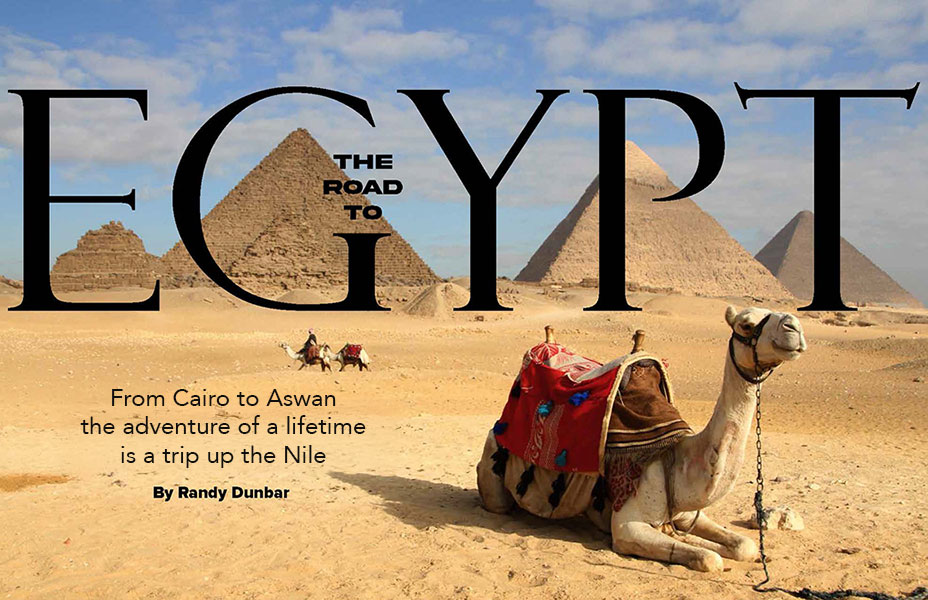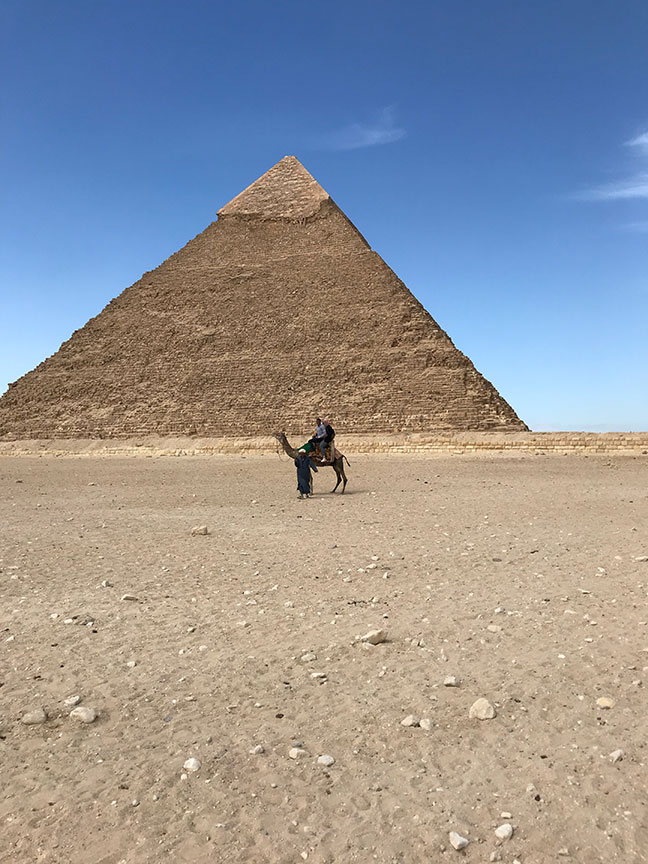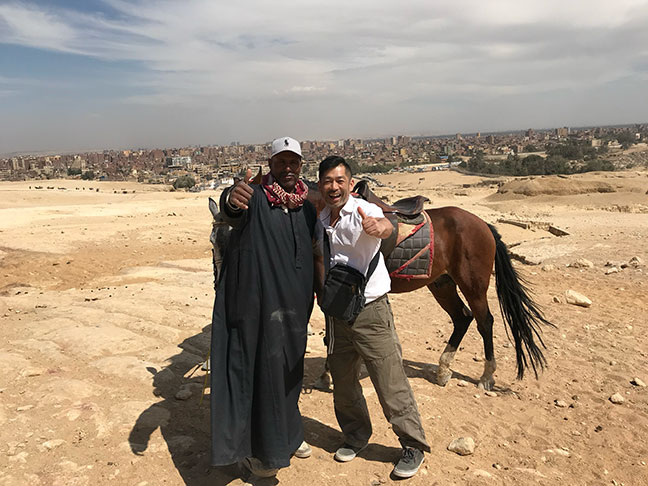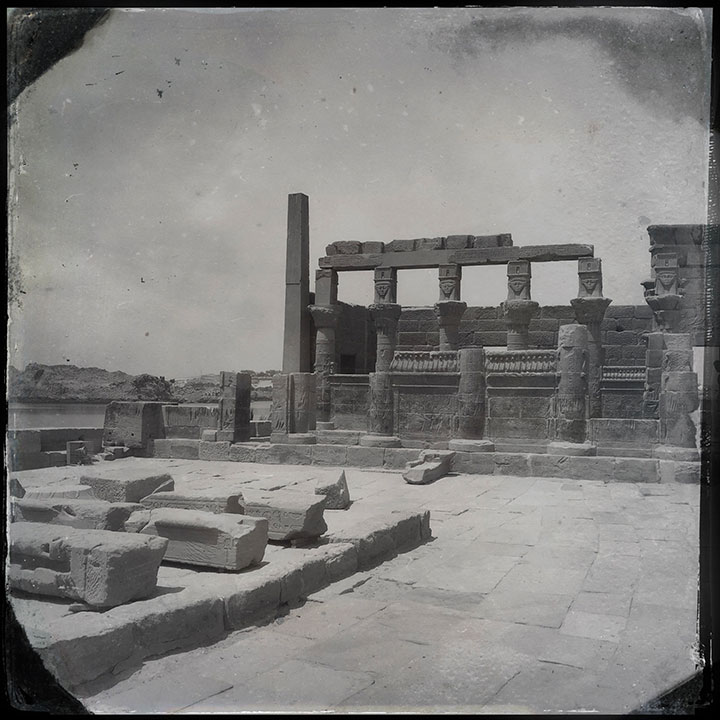



A Whirliing Dervsih takes it for a spin
Not Your Average Vacation: Cruising the Nile
Vacations come in many flavors—the island escape, the mountain trek, the European cathedral circuit. And then there’s the Middle East, or North Africa.
Coined in the 1850s by a British India official, the term “Middle East” spans 18 countries, 60-plus languages, and nearly four million people. It’s the birthplace of major world religions, a crossroads of politics, trade, and culture for millennia.
Suffice it to say, this is not a Hawaiian Adventure.
Our journey began in Cairo and ended in Russia, but what stayed with me most was the stretch between Aswan and Luxor, reached by an overnight train and a four-night Nile cruise.
Cairo to Aswan: Time Travel by Train
The night train south rattled through scenes that felt unchanged for centuries—men pushing carts, horses dragging sugarcane, a cow carcass in a stagnant roadside pond. Time, it seemed, had barely moved here.
Aswan is a smaller, calmer Cairo, though fast food chains are creeping in—McDonald’s, KFC, and likely Starbucks soon. Still, the city holds to its roots. We boarded Sanctuary Boat IV for a 4-night/5-day Nile cruise: Art Deco elegance with fine dining, expert guides, and nightly entertainment.
Wait—Five Days for 150 Miles?
Yes. And it’s worth every hour.
The cruise lingers in Aswan and Luxor for roughly 36 hours each, giving guests time to explore Egypt’s unmatched archaeological wealth. One-third of the world’s antiquities are here, and Luxor alone is called the greatest open-air museum on Earth.
From the moment we stepped aboard, we were treated like royalty. Our host, Aylian, welcomed us with drinks and a smile that never seemed to fade. One of our first excursions was a felucca sail around Elephantine Island, Lord Kitchener’s Botanical Gardens, and the Agha Khan Mausoleum. With only wind to move us and the crew singing folk songs, the quiet of the Nile felt almost otherworldly.
Temples, Tombs—and No Pyramids?
If you’re picturing pyramids along the Nile, think again—they’re in Giza. The sites along the Upper Nile—Kom Ombo, Edfu, Esna, Luxor—bear Greek and Roman influence. Egypt’s era of pyramid-building had passed; temples became the grand statement instead.
A trained Egyptologist guided us through every column and carving. We listened, we marveled… and occasionally, we tested the rules.
Life Aboard
Days on the boat were never dull: Egyptian cooking classes, afternoon tea, movie night (Death on the Nile, naturally), a costume party, even disco under the stars. One evening , a group of Whirling Dervishes performed their energetic dance to a fascinated group of onlookers. The Whirling Dervish is from the Tanoura tradition originating in Turkey.
Fellow Travelers
Travel is shaped as much by people as by places. On this cruise, we met a Brazilian opera singer, an Indian family from England whose son could rap Hamilton on command, and an Egyptian oil magnate with stories as deep as the river itself.
Standing Still
At the Giza Pyramid Complex, if you stood still long enough, blocking out the tour buses and chatter, you could feel something beyond the spectacle—a connection to humanity’s deep past. Egypt doesn’t just hold history; it breathes it.
People often ask me, What’s your favorite place to visit? Cairo and the Nile are always near the top of that list. Cairo is a mad, intoxicating city—its soundtrack a cacophony of car horns, the air scented with cigarette smoke and street food. Yet all that chaos softens in the quiet grandeur of the Mosque of Muhammad Ali, a historic masterpiece rising above the city from its perch in the Cairo Citadel. Commissioned by Muhammad Ali Pasha and built between 1832 and 1857, it remains one of Cairo’s most striking landmarks, visible for miles across the skyline. Standing there, looking out over the sprawl, I felt the world shift just a little in my mind.
Looking back, it may well have been the trip of a lifetime. Or perhaps it’s only in hindsight that I see it that way—time has a way of reshaping memories, lending them a tender memory. There is a particular nostalgia for certain places, people, and moments, a pull that never quite fades. Egypt is that place for me: a point on the map that called out once and never stopped echoing. To say it was unforgettable feels too easy, but that is exactly what it was.